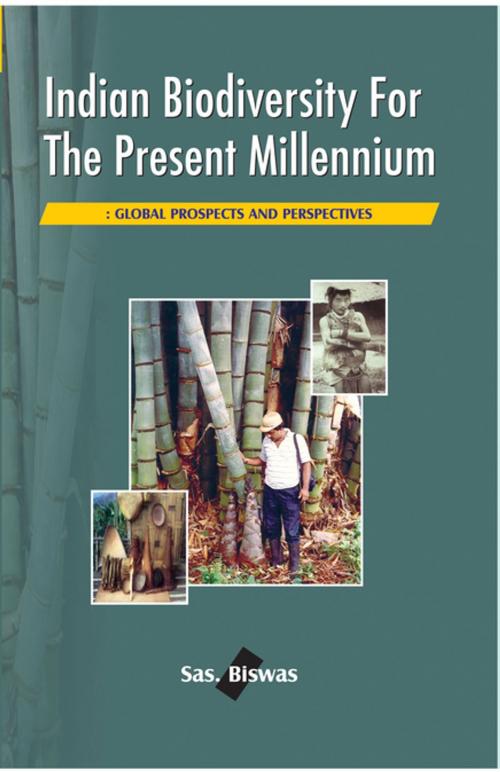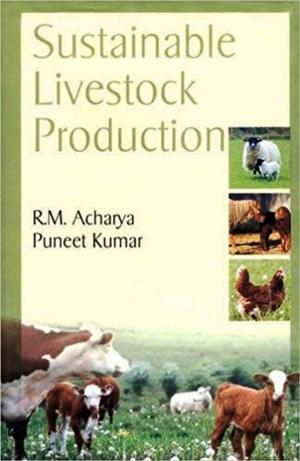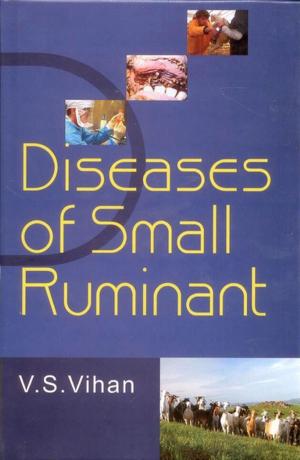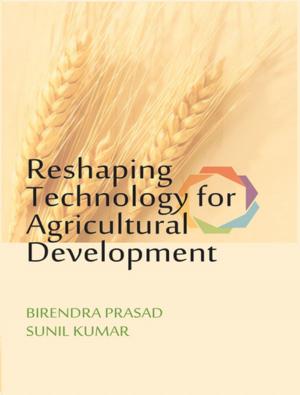Indian Biodiversity for the Present Millennium
Global Prospectus And Perspectives
Nonfiction, Science & Nature, Nature, Environment, Environmental Conservation & Protection| Author: | Sas. Biswas | ISBN: | 9789384988234 |
| Publisher: | Satish Serial Publishing House | Publication: | June 30, 2006 |
| Imprint: | Satish Serial Publishing House | Language: | English |
| Author: | Sas. Biswas |
| ISBN: | 9789384988234 |
| Publisher: | Satish Serial Publishing House |
| Publication: | June 30, 2006 |
| Imprint: | Satish Serial Publishing House |
| Language: | English |
India and adjoining countries with diversity of people, culture and livelihoods are endowed with rich biological diversity and genetic resources. The country in the past millennium contributed immensely towards the development of bio-resource and the management of environment for the welfare of the society and posterity. India has leaped high among the developing countries with the richness of resources and their sustainable management to be placed among the developed nations within foreseeable future. With the global prospects and perspectives, the subject of biological diversity and its management, the country has reached a new height to the world’s attention. The book on Indian Biodiversity for the Present Millennium: Global Prospects and Perspectives with 11 chapters brings to the reader accounts on the Indian biological diversity, known and under-exploited with potential for the present millennium, forest and medicinal flora, domestic animal and marine biodiversity with threat perceptions, and conservation needs and priorities. The chapters provide enumerated accounting on species diversity with extent of distribution based on inventorization, monitoring and characterization comprehensively. Conventional international norms for threat categories on species and the newer trends on the habitat are specifically dealt along with criteria and indicators. A chapter provides an account on the status of assessment and evaluation of floristic diversity in different countries. The book also contributes on the integrated and people’s participatory aspects on the traditional knowledge and grassroot innovations citing examples as case studies from areas of conservation significance. With a view to assessing various adverse impacts on the biodiversity, the treatise deals on different aspects incorporating national and international issues on the subject. The book has annexes on the text of Convention on Biological Diversity (CBD) and Indian Biodiversity Act, 2002, and glossary and abbreviations on various technical terms and forms for ready reference. Each chapter has references cited in the end. For the scientists, the conservationist, students of biology and the nature enthusiast and particularly those interested in learning about the biological diversity of India with global prospects and perspectives, the present book provides substantial information.
India and adjoining countries with diversity of people, culture and livelihoods are endowed with rich biological diversity and genetic resources. The country in the past millennium contributed immensely towards the development of bio-resource and the management of environment for the welfare of the society and posterity. India has leaped high among the developing countries with the richness of resources and their sustainable management to be placed among the developed nations within foreseeable future. With the global prospects and perspectives, the subject of biological diversity and its management, the country has reached a new height to the world’s attention. The book on Indian Biodiversity for the Present Millennium: Global Prospects and Perspectives with 11 chapters brings to the reader accounts on the Indian biological diversity, known and under-exploited with potential for the present millennium, forest and medicinal flora, domestic animal and marine biodiversity with threat perceptions, and conservation needs and priorities. The chapters provide enumerated accounting on species diversity with extent of distribution based on inventorization, monitoring and characterization comprehensively. Conventional international norms for threat categories on species and the newer trends on the habitat are specifically dealt along with criteria and indicators. A chapter provides an account on the status of assessment and evaluation of floristic diversity in different countries. The book also contributes on the integrated and people’s participatory aspects on the traditional knowledge and grassroot innovations citing examples as case studies from areas of conservation significance. With a view to assessing various adverse impacts on the biodiversity, the treatise deals on different aspects incorporating national and international issues on the subject. The book has annexes on the text of Convention on Biological Diversity (CBD) and Indian Biodiversity Act, 2002, and glossary and abbreviations on various technical terms and forms for ready reference. Each chapter has references cited in the end. For the scientists, the conservationist, students of biology and the nature enthusiast and particularly those interested in learning about the biological diversity of India with global prospects and perspectives, the present book provides substantial information.















